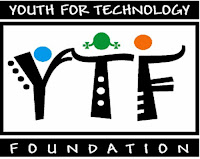My materials included a (squirt) gun, wallet with cash, and a pile of sugar packets to represent drugs. The first week I wandered around finding houses (er, groups of chairs) that left their valuables out in the open. Ransacking homes of their stereos and microwaves was a great thrill, and soon my pockets were full of the cards representing these valuables. I tried to kidnap a child (ie baby doll) from the school, but the Mom came just in time. Darn it!
Week 3 really started to pick up with shenanigans. The school was closed to I sold drugs to kids wandering around the community. This was especially funny, considering the participants were all teachers from the local district who took up the opportunity to buy
My buddy at the Quick Cash ran out of cash, so I went to help her out my robbing people at gunpoint. My favorite, and most surprising, moment was when a stray kid actually refused to be robbed. She grabbed my blue plastic gun by the barrel, looked me in the eye, and told me this was her territory for selling drugs and robbing. Naturally, I then robbed the bank as a last resort.
Takeaways:
I love the debriefing part of Poverty Simulations, as everyone gets to hear the struggles and accomplishments of each family and business. Business owners confess to shortchanging clients and illegally evicting families from their homes. Families units give their background situation and share their journey through the month. I loved hearing revelations from the teachers about how their experience in the simulation is already re-shaping their perspective on students. Think of the teacher/student who grabbed my gun and took her own territory. Things like that happen all the time when parents are busting their butts looking for work and taking care of keeping the family afloat. The kids are free to roam and take matters of protecting themselves (or making money) into their own hands.
The teacher/participants also expressed connections of understanding between their short experience and the lives of their students. After they spent an hour scrambling to pay bills and make difficult choices between paying for food or utilities (made even harder if they were robbed by yours truly, heh heh), the teachers commented on how the cost of school, including field trips and supply costs, could make a huge impact on a low income family. Families also might not know where to turn for help, not considering informing the school of their struggles or not finding resources right under their nose, like Community Actions Agencies.
I love doing Poverty Simulations, especially for groups of people who have limited experience with a life in poverty. It's amazing how a short hour can shift mindsets and perspectives, helping neighbors relate and advocate for one another.



